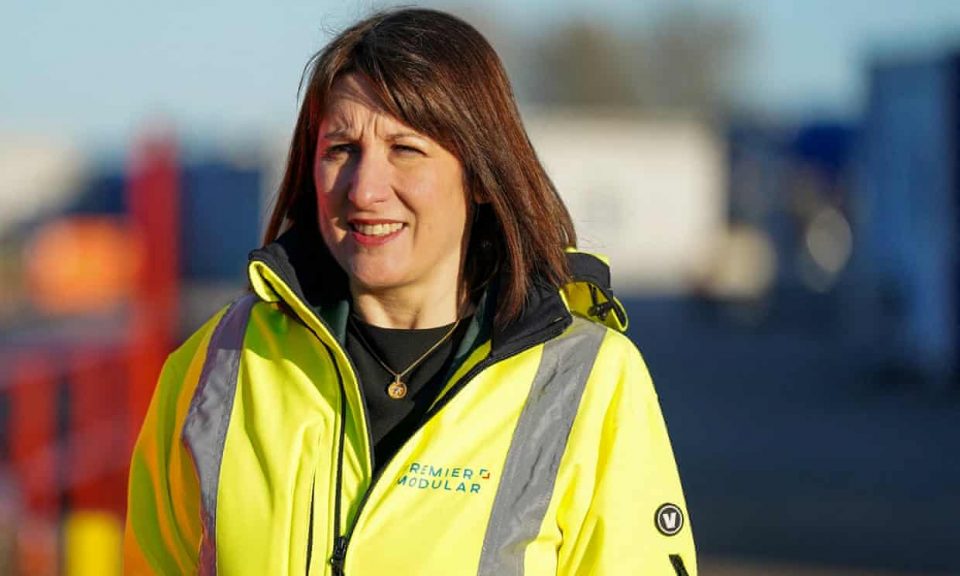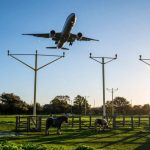Rachel Reeves faced backlash on Saturday evening after it was revealed that the report she referenced to support the claim that a third runway at Heathrow would benefit the UK’s economy was commissioned by the airport itself.
Experts, as well as environmental organizations, criticized Reeves’s assertion that innovations in sustainable aviation fuel (SAF) had been a significant breakthrough likely to reduce the environmental impact of air travel. They argued that her claims were exaggerated and lacked robust evidence.
During a speech in Oxford, where she emphasized her dedication to exhaust every avenue in pursuit of economic growth, the Chancellor stated that the new runway would generate 100,000 jobs and provide the UK with access to emerging global markets, thereby creating new growth opportunities.
Reeves mentioned: “The latest study from Frontier Economics suggests that a third runway could potentially increase GDP by 0.43% by the year 2050.”
Additionally, she noted: “60% of that economic boost would be directed to regions outside of London and the South-East.”
However, it has since emerged that Frontier Economics confirmed to the *Observer* it was indeed commissioned by Heathrow to produce the report, despite insisting that the evaluation was conducted independently. Heathrow acknowledged its role in initiating the report’s creation. While they have made an executive summary available online, the full report has yet to be published.
The New Economics Foundation (NEF) think tank criticized the Chancellor late Saturday for the logic she presented in favor of expanding the runway. They pointed out that the methodology employed in the report was previously determined to be unreliable by the Department for Transport.
According to Alex Chapman, a senior economist at NEF: “It’s quite alarming that the Chancellor seems to be supporting Heathrow’s expansion based on a figure derived from a report commissioned by Heathrow.
“What’s even more troubling is that this methodology has been ruled inadequate by the Department for Transport, and the report employs projections sourced from the airport itself.
“Expanding Heathrow poses a significant threat to the UK’s climate objectives, contradicting scientific advice. To validate the proposed economic advantages, assessments should be performed by independent economists adhering to recognized methodologies.
“NEF’s analysis has revealed numerous deficiencies in the economic rationale, particularly since its last thorough evaluation in 2015. Key factors include a decrease in business travel, an increase in outbound leisure travel, and adverse effects on various UK regions, all of which undermine the anticipated growth benefits.”
Analysis from the climate-focused platform Carbon Brief indicates that, based on government data, SAF will have a minimal effect on emissions reductions by 2040, with any gains likely negated by an increase in flight activity.
Additionally, research conducted in 2023 by the Royal Society found that to produce sufficient biofuels to meet the UK’s aviation fuel needs sustainably would necessitate using roughly half of the country’s agricultural land.
A representative from Frontier Economics defended its standing as a reputable consultancy, stating, “Frontier Economics is recognized as one of the leading economic consultancies in Europe. We have collaborated with various stakeholders in the aviation sector, including the UK government, the Civil Aviation Authority, and airlines. They, along with Heathrow, appreciate our analysis for its impartiality. In this case, our findings are largely consistent with those reported by the independent Airports Commission and the Department for Transport. We acknowledge the complexity of this issue, and our report comprehensively outlines all pertinent aspects: the costs, benefits, overall impacts, and uncertainties.”
Aoife O’Leary, the chief executive of the NGO Opportunity Green, commented that expanding flight operations in and out of the UK would not deliver the economic growth Reeves sought.
“Business travel is increasingly a smaller portion of overall flights, and while foreign visitors contribute to the UK economy, they are eclipsed threefold by UK tourists spending money abroad, resulting in a net outflow of £41 billion. If the goal is growth, enhancing connectivity beyond London through improved domestic transport could yield better investment returns,” she said, also asserting that SAF was merely an “illusion.”
O’Leary further explained, “These fuels are derived from crops, oils, and other plant materials. Yet, their production demands extensive land use, jeopardizing food security and biodiversity. Currently, these fuels are not widely available, and scaling production to the levels necessary for aviation decarbonization would conflict with any sustainability principles.”
The Treasury has been contacted for a response.


